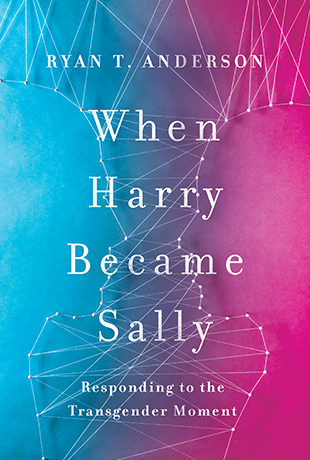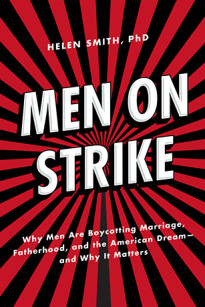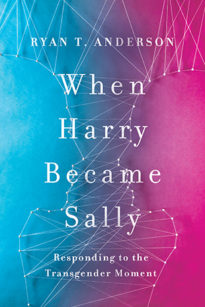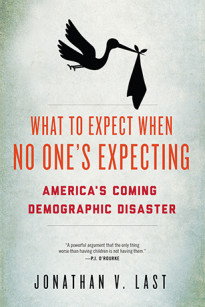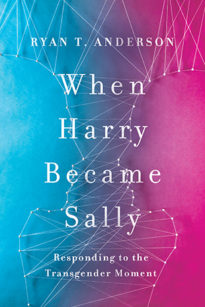The Sunday following Thanksgiving 2018, Andrea Long Chu published a heartfelt and heartbreaking op‑ed in the New York Times on life with gender dysphoria. While the piece was clearly intended as a statement in favor of “sex reassignment,” it communicates almost the exact opposite message, revealing painful truths about many transgender lives. Even the title conveys ambivalence: “My New Vagina Won’t Make Me Happy.”
Chu was scheduled to undergo vaginoplasty surgery several days later. “Next Thursday, I will get a vagina,” wrote Chu. “The procedure will last around six hours, and I will be in recovery for at least three months.” Would this bring happiness? Probably not, Chu admitted, but that was beside the point: “This is what I want, but there is no guarantee it will make me happier. In fact, I don’t expect it to. That shouldn’t disqualify me from getting it.”
Chu argues that the simple desire for sex reassignment surgery should be all that is required for a patient to receive it. No further consideration for authentic health and well-being should enter in. No concern about poor outcomes should prevent a doctor from performing the surgery if a patient wants it, and “no amount of pain, anticipated or continuing, justifies its withholding.” According to Chu, “surgery’s only prerequisite should be a simple demonstration of want.”
This is a rather extreme stance with regard to the basis for a medical procedure, and we’ll come back to it later on. But as the op‑ed builds to this radical conclusion, Chu discloses many truths about transgender lives that are seldom acknowledged—truths that we should attend to.
1. Sex Isn’t “Assigned,” and Surgery Can’t Change It
Chu acknowledges that the surgery won’t actually “reassign” sex. On the contrary, “my body will regard the vagina as a wound; as a result, it will require regular, painful attention to maintain.”
Indeed, sex reassignment is quite literally impossible. Surgery can’t actually reassign sex, because sex isn’t “assigned” in the first place. As I explain in this book, sex is a bodily reality: the reality of how an organism is organized with respect to sexual reproduction. That reality isn’t “assigned” at birth or any time afterward. Sex—maleness or femaleness—is established at a child’s conception; it can be ascertained by technological means even at the earliest stages of embryological development; it can be observed visually well before birth with ultrasound imaging. And the biological reality goes deeper than anything that can be changed by cosmetic surgery and cross-sex hormones.
People who undergo sex reassignment procedures do not become the opposite sex. They merely masculinize or feminize their outward appearance.
2. Gender Dysphoria Is Deeply Painful
Chu describes the deep pain of gender dysphoria, the sense of distress over one’s bodily sex and alienation from one’s own body:
Dysphoria feels like being unable to get warm, no matter how many layers you put on. It feels like hunger without appetite. It feels like getting on an airplane to fly home, only to realize mid-flight that this is it: You’re going to spend the rest of your life on an airplane. It feels like grieving. It feels like having nothing to grieve.
People with gender dysphoria don’t choose it and aren’t faking it. They really are suffering. And we should take their testimony seriously.
3. “Transitioning” May Not Bring Relief from the Pain
Chu acknowledges that “transitioning” may not make things better and could even make things worse. “I feel demonstrably worse since I started on hormones,” Chu writes. And continues: “Like many of my trans friends, I’ve watched my dysphoria balloon since I began transition.”
Would completing the process help? Not according to the best medical findings. The evidence suggests that sex reassignment does not adequately address the psychosocial difficulties faced by people who identify as transgender. Even when the procedures are successful technically and cosmetically, and even in cultures that are relatively “trans-friendly,” transitioners still face poor outcomes.
Even the Obama administration admitted that the best studies do not report improvement after reassignment surgery. In August 2016, the Centers for Medicare and Medicaid noted that “the four best designed and conducted studies that assessed quality of life before and after surgery using validated (albeit non-specific) psychometric studies did not demonstrate clinically significant changes or differences in psychometric test results after GRS [gender reassignment surgery].”
What does that mean? A population of patients is suffering so much that they would submit to amputations and other radical surgeries, and the best research the Obama administration could find suggests that those drastic measures bring them no meaningful improvements in quality of life.
4. Suicide Is a Serious Risk
Chu acknowledges a struggle with suicidal ideation beginning after the transition treatment started: “I was not suicidal before hormones. Now I often am.”
The Obama administration acknowledged that this is often a reality of life after such treatments. In a discussion of the largest and most robust study on outcomes of sex reassignment, the Centers for Medicare and Medicaid pointed out: “The study identified increased mortality and psychiatric hospitalization compared to the matched controls. The mortality was primarily due to completed suicides (19.1-fold greater than in control Swedes).”
These results are tragic. And they directly contradict the most popular media narratives about “sex reassignment,” as well as many of the snapshot studies that do not track people over time. Long-term studies are crucial because, as the Obama administration noted, “mortality from this patient population did not become apparent until after 10 years.” So when the media tout studies that track outcomes for only a few years, and claim on this basis that reassignment is a stunning success, there are good grounds for skepticism.
* * *
Given these acknowledged problems with gender reassignment as a treatment path, let’s look again at Chu’s argument that “surgery’s only prerequisite should be a simple demonstration of want.” What are the grounds for this assertion?
Why should a doctor perform surgery when it won’t make the patient happy, it won’t accomplish its intended goal, it won’t improve the underlying condition, it might make the underlying condition worse, and it might increase the likelihood of suicide? Chu wants to turn the profession of medicine on its head, so that medical doctors would simply carry out instructions from their patients, rather than use their knowledge to lead patients to healing and wholeness.
